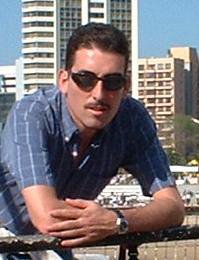US says No to Spain´s Aircraft Deal
In a move that could further sour relations between the Bush administration and Socialist government of José Luis Rodríguez Zapatero, the U.S. government has blocked Spain´s deal to sell Venezuela 12 planes equipped with U.S. technology. U.S. Ambassador Eduardo Aguirre told Spanish Foreign Minister Miguel Angel Moratinos that his country was concerned about Venezuelan President Hugo Chávez´s growing authoritarian rule. The sale of 10 Spanish-made C-295 transport and two CN-235 maritime aircraft "has the potential to complicate the situation" in the region, the daily El País quoted U.S. diplomatic sources on Friday.
The Spanish defense contractor CASA-EADS and the Venezuela government signed the €1.7 billion deal last November. However, the company needed the approval of the United States because the sale involved the transfer of U.S. technology. On Friday, Radio Nacional de España quoted Defense Ministry sources as saying that the deal would go through despite the U.S. government´s disapproval.
Last week, Chávez accused the United States of blocking similar sales with Brazil and Russia. The Venezuelan leader has now threatened to go to China to buy MiG fighter jets. Nevertheless, as Chávez shops around for military equipment with his country´s petro-dollars, Venezuela´s infrastructure is crumbling. Last week, the country´s only viable road that connects Caracas to Venezuela´s international air and sea ports was closed after engineers reported that one of two main bridges has begun to buckle when one its supports cracked (photo on right). The usual 40-minute drive from the capital to the Simón Bolívar International Airport now takes four hours as traffic had to be diverted to a dangerous road that snakes through shanty towns alongside Mount Avila, which separates the capital from the Caribbean. Chávez has tried to calm political and social tensions by assuring that the highway will be reopened next month. However, it may not be in time for the World Social Forum he is hosting. The annual event organized as an anti-globalization movement is expected to attract 100,000 people from abroad in February.
Nevertheless, as Chávez shops around for military equipment with his country´s petro-dollars, Venezuela´s infrastructure is crumbling. Last week, the country´s only viable road that connects Caracas to Venezuela´s international air and sea ports was closed after engineers reported that one of two main bridges has begun to buckle when one its supports cracked (photo on right). The usual 40-minute drive from the capital to the Simón Bolívar International Airport now takes four hours as traffic had to be diverted to a dangerous road that snakes through shanty towns alongside Mount Avila, which separates the capital from the Caribbean. Chávez has tried to calm political and social tensions by assuring that the highway will be reopened next month. However, it may not be in time for the World Social Forum he is hosting. The annual event organized as an anti-globalization movement is expected to attract 100,000 people from abroad in February.
Tensions are also mounting between Peru and Venezuela following President Alejandro Toledo´s accusations earlier this week that Chávez is trying to meddle in his country´s upcoming elections by publicly supporting a left-wing candidate. Peru recalled its ambassador to Caracas. It was the second time in months relations between a Latin American country and Venezuela have turned sour. In November, Mexico recalled its ambassador after Chávez accused President Vicente Fox of being George Bush´s "puppet."


0 Comments:
Post a Comment
<< Home